BMW iX1 VS VW Touran – Specs, Efficiency & Price Comparison
Which model is the better choice – the BMW iX1 or the VW Touran? We compare performance (313 HP vs 150 HP), boot capacity (490 L vs 834 L), efficiency (15.80 kWh vs 5.30 L), and of course, the price (41800 £ vs 34700 £).
Find out now which car fits your needs better!
The BMW iX1 (SUV) is powered by a Electric engine and comes with a Automatic transmission. In comparison, the VW Touran (MPV) features a Petrol or Diesel engine and a Manuel or Automatic gearbox.
When it comes to boot capacity, the BMW iX1 offers 490 L, while the VW Touran provides 834 L – depending on what matters most to you. If you’re looking for more power, you’ll need to decide whether the 313 HP of the BMW iX1 or the 150 HP of the VW Touran suits your needs better.
There are also differences in efficiency: 15.80 kWh vs 5.30 L. In terms of price, the BMW iX1 starts at 41800 £, while the VW Touran is available from 34700 £.
Compare all the key specs now and find out which model fits your lifestyle best!
In the competitive landscape of compact SUVs and family vehicles, the BMW iX1 stands out with its sleek electric design and innovative technology, offering a dynamic driving experience. In contrast, the VW Touran excels in practicality and versatility, making it an ideal choice for families seeking spaciousness and comfort. When comparing both, buyers must weigh the iX1's eco-friendly performance against the Touran's renowned reliability and functionality.
BMW iX1
The BMW iX1 stands out as a versatile addition to the electric vehicle market, seamlessly combining compact dimensions with advanced electric technology. Its sophisticated design elements and premium interiors ensure a luxurious driving experience, while the vehicle's performance focuses on delivering both efficiency and agility. With enhanced connectivity features and an emphasis on sustainability, this model represents a significant step forward in BMW's commitment to a greener future.
details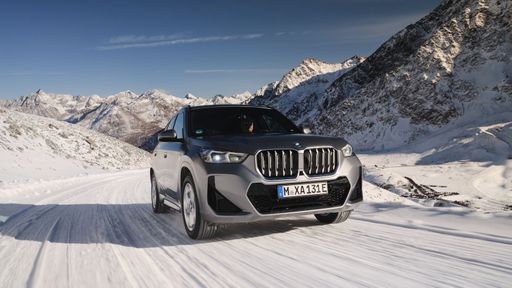 @ press.bmwgroup.com
@ press.bmwgroup.com
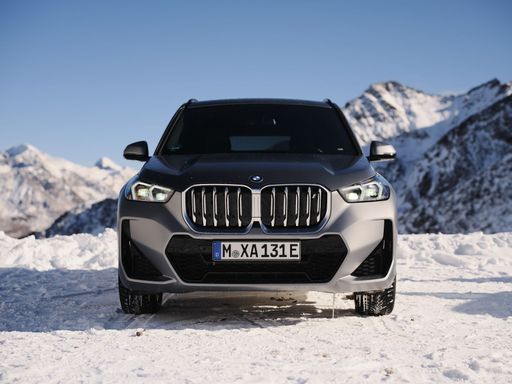 @ press.bmwgroup.com
@ press.bmwgroup.com
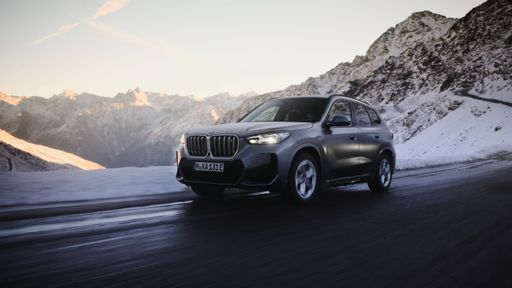 @ press.bmwgroup.com
@ press.bmwgroup.com
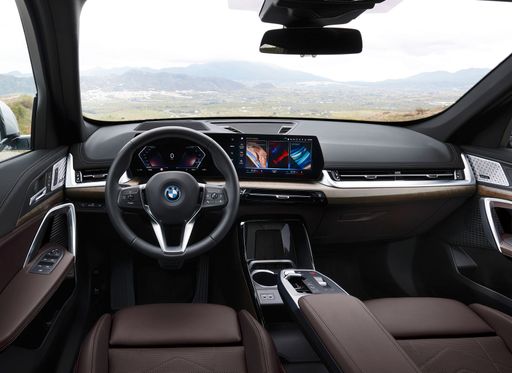 @ press.bmwgroup.com
@ press.bmwgroup.com
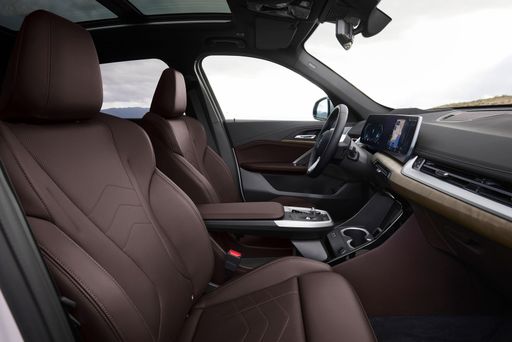 @ press.bmwgroup.com
@ press.bmwgroup.com
VW Touran
The VW Touran stands out as a versatile and reliable choice for family transportation. Its spacious interior and cleverly designed seating arrangements offer exceptional comfort and practicality for both short trips and long journeys. With a focus on safety and an array of advanced features, the Touran delivers a driving experience that combines convenience with peace of mind.
details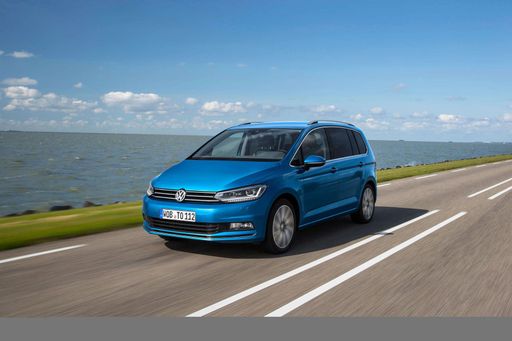 @ volkswagen-newsroom.com
@ volkswagen-newsroom.com
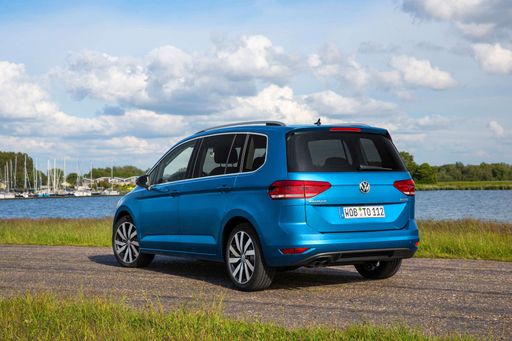 @ volkswagen-newsroom.com
@ volkswagen-newsroom.com
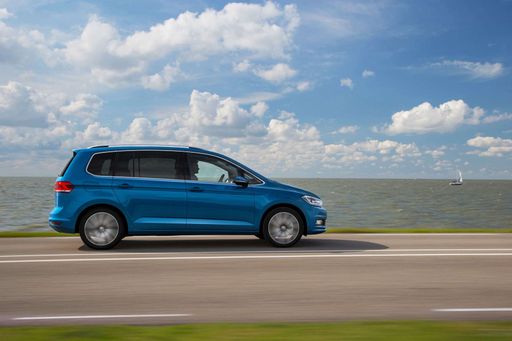 @ volkswagen-newsroom.com
@ volkswagen-newsroom.com
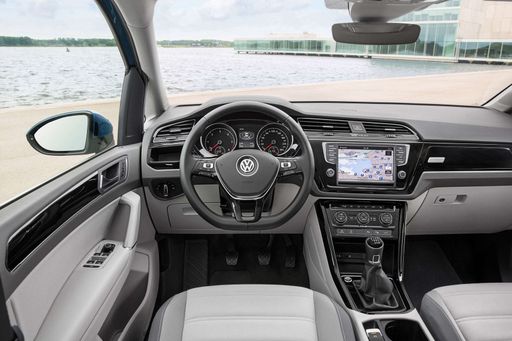 @ volkswagen-newsroom.com
@ volkswagen-newsroom.com
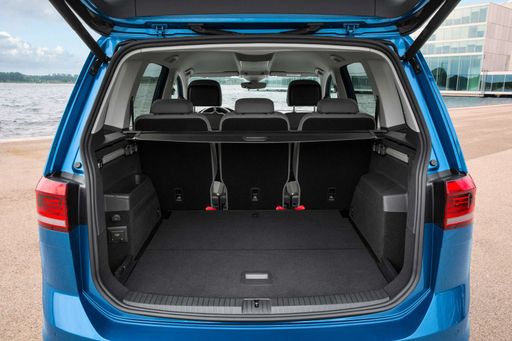 @ volkswagen-newsroom.com
@ volkswagen-newsroom.com
Introduction: A Clash of Comfort and Performance
The automotive landscape is evolving rapidly, with electric vehicles (EVs) gaining traction alongside traditional combustion engines. In this article, we compare two remarkable models in their respective categories: the fully electric BMW iX1 and the versatile Volkswagen Touran MPV. Both cars offer unique features, cater to different consumer needs, and showcase the latest in automotive technology.
Design and Dimensions
Both the BMW iX1 and the VW Touran maintain a robust and stylish presence on the road, though they cater to different audiences.
The BMW iX1 is a compact SUV measuring 4500 mm in length, 1845 mm in width, and 1616 mm in height. It combines sporty aesthetics with practicality, featuring a futuristic design that resonates with the increasingly eco-conscious consumer.
In contrast, the Volkswagen Touran is slightly larger at 4527 mm in length, with a width of 1829 mm and a height of 1668 mm. Its MPV form factor is designed to maximize interior space and family comfort, offering generous trunk capacity of 834 liters.
Power and Performance
Performance-wise, the BMW iX1 offers a dual-motor setup for all-wheel drive variants, generating a robust 313 HP with a torque of 494 Nm. The acceleration from 0 to 100 km/h takes just 5.6 seconds, defining a new standard for electric vehicles in its class. The electric range is remarkable, producing up to 463 km on a single charge, while the energy consumption stands at an efficient 15.8 kWh/100 km.
On the other hand, the Volkswagen Touran offers a choice between petrol and diesel engines. The petrol variant produces up to 150 HP with a torque of 250 Nm, while the diesel option generates 122 HP, delivering a mix of efficacy and dependability for everyday family use. Acceleration for the petrol model is respectable at 9.3 seconds for 0 to 100 km/h. Where the Touran excels is in its fuel efficiency, with consumption figures ranging from 5.1 to 6.4 L/100 km, accommodating the eco-conscious family needing diverse long-distance capabilities.
Innovative Technologies
BMW's latest iX1 comes loaded with cutting-edge technology, including intuitive infotainment systems powered by the iDrive interface, enhanced route planning, and regenerative braking. Its CO2 efficiency class is rated A, showcasing its commitment to sustainability without compromising performance.
The VW Touran isn't short on tech either; equipped with a range of infotainment features, driver assistance systems, and connectivity options, it stands out in the family vehicle market. Features include automated parking assistance and adaptive cruise control, ensuring a safe and comfortable experience for all passengers.
Interior Comfort and Usability
Inside the BMW iX1, the focus on luxury and convenience is evident, with quality materials, spacious seating for five, and significant storage options including a trunk capacity of 490 liters. Innovative features like climate control and customizable ambient lighting heighten the driving experience.
Meanwhile, the Volkswagen Touran prioritizes practicality, with ample passenger space and clever storage solutions. The flexibility of its seating arrangements allows for easy adjustments to fit families' varying needs. The light and airy cabin design, paired with a trunk capacity that swells to 834 liters, makes it a champion for transporting everything from kids to camping gear.
Conclusion: Choosing Your Vehicle
In summary, the selection between the BMW iX1 and the Volkswagen Touran primarily depends on consumer needs. If you seek an electric vehicle that offers exhilarating performance and modern features, the iX1 is a strong contender. However, for families needing space, versatility, and proven efficiency, the Touran stands tall as a solid MPV choice. With both models offering exceptional technology and performance, the final decision boils down to lifestyle and driving preferences.

|

|
|
|
|
Costs and Consumption |
|
|---|---|
|
Price
41800 - 54600 £
|
Price
34700 - 43900 £
|
|
Consumption L/100km
-
|
Consumption L/100km
5.3 - 6.6 L
|
|
Consumption kWh/100km
15.8 - 17.1 kWh
|
Consumption kWh/100km
-
|
|
Electric Range
436 - 463 km
|
Electric Range
-
|
|
Battery Capacity
64.80 kWh
|
Battery Capacity
-
|
|
co2
0 g/km
|
co2
140 - 150 g/km
|
|
Fuel tank capacity
-
|
Fuel tank capacity
58 L
|
Dimensions and Body |
|
|---|---|
|
Body Type
SUV
|
Body Type
MPV
|
|
Seats
5
|
Seats
5
|
|
Doors
5
|
Doors
5
|
|
Curb weight
1940 - 2085 kg
|
Curb weight
1520 - 1631 kg
|
|
Trunk capacity
490 L
|
Trunk capacity
834 L
|
|
Length
4500 mm
|
Length
4527 mm
|
|
Width
1845 mm
|
Width
1829 mm
|
|
Height
1616 mm
|
Height
1668 mm
|
|
Payload
495 kg
|
Payload
590 - 601 kg
|
Engine and Performance |
|
|---|---|
|
Engine Type
Electric
|
Engine Type
Petrol, Diesel
|
|
Transmission
Automatic
|
Transmission
Manuel, Automatic
|
|
Transmission Detail
-
|
Transmission Detail
Schaltgetriebe, Automat. Schaltgetriebe (Doppelkupplung)
|
|
Drive Type
Front-Wheel Drive, All-Wheel Drive
|
Drive Type
Front-Wheel Drive
|
|
Power HP
204 - 313 HP
|
Power HP
122 - 150 HP
|
|
Acceleration 0-100km/h
5.6 - 8.6 s
|
Acceleration 0-100km/h
8.9 - 10.8 s
|
|
Max Speed
170 - 180 km/h
|
Max Speed
195 - 209 km/h
|
|
Torque
250 - 494 Nm
|
Torque
250 - 360 Nm
|
|
Number of Cylinders
-
|
Number of Cylinders
4
|
|
Power kW
150 - 230 kW
|
Power kW
90 - 110 kW
|
|
Engine capacity
-
|
Engine capacity
1498 - 1968 cm3
|
General |
|
|---|---|
|
Model Year
2022 - 2023
|
Model Year
2024
|
|
CO2 Efficiency Class
A
|
CO2 Efficiency Class
E
|
|
Brand
BMW
|
Brand
VW
|
BMW iX1
A New Era of Innovation: Meet the BMW iX1
The automotive world has seen a seismic shift towards sustainability and electrification, and BMW has solidified its place in this evolution with the introduction of the BMW iX1. As a fully electric SUV, the iX1 serves as a testament to how luxury, performance, and eco-consciousness can harmoniously blend in the modern automotive landscape.
Exquisite Design Meets Purposeful Engineering
The BMW iX1 is not just an electric vehicle; it's an embodiment of cutting-edge design and technology. With its bold SUV silhouette, the iX1 boasts dimensions of 4500 mm in length, 1845 mm in width, and 1616 mm in height, providing a spacious yet agile presence on the road. Its dynamic aesthetic is complemented by an aerodynamic form that enhances efficiency, offering a drag coefficient that rivals traditional SUV models.
Powertrain and Performance Specifications
Beneath the hood of the BMW iX1 lays an electric motor that signifies the future of automotive engineering. Available variants offer power outputs ranging from 204 to 313 PS (150 to 230 kW). The iX1 comes with either a front-wheel or all-wheel drivetrain, catering to different driving preferences. The xDrive30 variant, in particular, features all-wheel drive, delivering up to 313 PS for those who crave enhanced traction and control.
With a commendable electric consumption of 15.8 to 17.1 kWh per 100 km, the iX1 strikes a fine balance between power and efficiency. Its acceleration stats are equally impressive, with the ability to go from 0-100 km/h in as little as 5.6 seconds. This ensures that while it's eco-friendly, it does not compromise on the exhilaration factor. The vehicle can reach a top speed range between 170 and 180 km/h.
A Journey Without Interruptions: Range and Battery Life
The iX1's battery, boasting a capacity of 64.8 kWh, provides a substantial driving range of 436 to 463 km on a single charge, depending on the variant. This means long road trips are not only feasible but enjoyable, eliminating the range anxiety often associated with electric vehicles.
Comfort and Technological Interior
Inside, the iX1 exemplifies BMW’s commitment to luxury and innovation. It’s a five-seater SUV designed with comfort at its forefront, featuring advanced technological interfaces that enrich the driving experience. The spacious cabin offers 490 litres of boot space, ensuring practicality without sacrificing style.
In terms of monthly costs, owning an iX1 can range between €1,147 and €1,453, considering the zero-emission appeal with a CO2 efficiency class of A.
The Financial Aspect of Sustainability
With a price range from €48,400 to €63,140, the BMW iX1 isn't just a vehicle—it's an investment in sustainable motoring. Factoring in a cost of around 45.9 to 58.1 cents per kilometre, the iX1 offers an economically viable option for the eco-conscious driver.
Conclusion: The Future Is Now
The BMW iX1 stands as a beacon of what the future holds for zero-emission vehicles. With a melding of sustainability, performance, and luxury, it's not just a car, but a glimpse into the next chapter of automotive history.
VW Touran
Discovering the VW Touran: A Versatile Family Van
The VW Touran is a compelling choice in the realm of family vehicles, boasting a combination of practicality, performance, and innovative features. As a van, it offers ample space and comfort while being equipped with modern technology to ensure a superior driving experience. Let's delve into its technical aspects and noteworthy innovations.
Engine Options and Performance
The VW Touran presents an impressive array of engine choices, catering to varied preferences. It is available in both petrol and diesel variants, with power outputs ranging from 122 to 150 PS. With a turbocharged 1.5-litre petrol engine, it efficiently combines power and fuel economy. Meanwhile, the diesel version, with a 2.0-litre TDI engine, promises commendable torque and fuel efficiency of up to 5.1 L/100km.
Designed to cater to different driving preferences, the Touran comes with either a manual or automatic gearbox. The automatic versions feature a highly responsive double-clutch system, enhancing the overall driving dynamics. Whether you prefer a lively drive through urban areas or a smooth cruising on highways, the Touran delivers a balanced experience.
Technical Specifications: Space and Practicality
Embodying the attributes of a perfect family van, the VW Touran offers generous interior space with seating for five and a versatile boot capacity of 834 litres. Its impressive dimensions, with a length of 4527 mm, a width of 1829 mm, and a height of 1668 mm, provide a spacious and comfortable cabin. The vehicle's practical features include a maximum payload capacity of up to 601 kg, making it ideal for family trips or transporting bulky items.
Moreover, the Touran's 58-litre fuel tank ensures fewer stops for fuel, enhancing long-distance travel convenience. With CO2 emissions between 133 to 147 g/km, it balances performance with environmental considerations. These attributes make it an ideal choice for families seeking both functionality and eco-friendliness.
Advanced Technology and Safety Features
Safety and innovation are at the heart of the VW Touran's design. It comes equipped with a variety of driver-assistance systems, including adaptive cruise control, lane assist, and park assist, which significantly enhance driving ease and safety. The infotainment system is no less impressive, offering seamless smartphone integration, navigation, and connectivity features.
The Touran also features VW's signature post-collision braking system, which mitigates the risk of secondary collisions. Combined with a robust and stable build, these features provide peace of mind to drivers and passengers alike.
Conclusion: The Ideal Family Companion
The VW Touran stands out in the competitive van segment with its blend of practicality, efficiency, and state-of-the-art technology. Whether you're embarking on a family adventure or navigating everyday commutes, the Touran is designed to meet the demands of modern living with ease. With its range of engine options, sophisticated features, and unwavering commitment to safety, it represents a solid investment for families seeking a reliable and versatile vehicle.
The prices and data displayed are estimates based on German list prices and may vary by country. This information is not legally binding.
